Technology
Next gen meta surface possibly coming to flat screens in 10 years

A research team from Nottingham Trent University in the UK, the Australian National University, and the University of New South Wales in Canberra have developed an experimental display technology that could replace the LCD panels used in many of today’s widescreen televisions.
How meta surface works.
While some modern high-end TVs may have quantum dot screens or OLED ( Organic Light Emitting Diode ) panels, many of the cheapest models available will use LCD (liquid crystal display) technology, polarizing filters, and LED ( Light Emitting Diode) backlights. But the researchers say the limit has been reached for the development of this type of technology. The team has developed electrically tunable arrays of nanoparticles called “metasurfaces” that may perform better and offer many advantages over LCD ( Liquid-Crystal Display) and LED (Light-emitting Diode) displays. For example, metasurfaces are 100 times thinner than liquid crystal cells, have “10 times” higher resolution, and consume 50 percent less power.
Which is the most important metrics of flat panel
“The most important metrics of flat panel displays are pixel size and resolution, weight, and power consumption. We have addressed each of these with our meta-display concept,” said lead researcher Mohsen Rahmani, a professor of engineering at Nottingham Trent University. The technology significantly reduces energy consumption
The researchers believe that the most significant benefit of their technology is the significant reduction in power consumption. “This is excellent news given the number of monitors and TV sets being used in households and businesses every single day. We believe it is time for LCD and LED displays to be phased out in the same way as former CRT ( Cathode Ray Tube) TVs over the past ten to 20 years,” said Rahmani.
The experimental platform uses a transparent conductive oxide
To drive individual pixels at a high modulation rate, the experimental platform uses a transparent conductive oxide that serves as an electrically driven heater that can rapidly change the optical properties of silicon metal surface cells, which are reported to be 100 times thinner. than liquid crystal cells or 200 times thinner than human hair. The technology provides sub-millisecond response times, 10 times faster than the detection limit of the human eye.
“Our pixels are made of silicon, which offers a long life span in contrast with organic materials required for other existing alternatives. Moreover, silicon is widely available, CMOS ( complementary metal oxide semiconductor) compatible with mature technology, and cheap to produce,” Professor Andrey Miro Shevchenko, a lead researcher in the Nanophotonics team at UNSW ( University of New South Wales ) Canberra, stated.
Does this use for dynamic virtual reality holography
This technology can also be used for dynamic virtual reality holography in LiDAR (Light Detection and Ranging) technologies and to produce thinner flat panels with 100 times higher resolution than current LCD-based displays, while cutting power consumption in half.
Furthermore, since a variety of metasurfaces can effectively replace the liquid crystal layer in modern displays, the researchers believe that manufacturers will not need to invest in new production lines to produce panels. The project will now focus on scaling the technology for big-screen TVs, as well as further improving the performance of metasurfaces using AI and machine learning.
Research summary:
In recent decades, metasurfaces have attracted a lot of attention due to their extraordinary light-scattering properties. However, its inherently static geometry is an obstacle for many applications where dynamic adjustment of its optical characteristics is required. Research is currently underway to dynamically tune the properties of the metasurface, especially with high tuning speed, large modulation by weak electrical signals, solid state, and the ability to program multiple pixels. Here we demonstrate electrically tunable metasurfaces controlled by the thermo-optic effect and flash heating on silicon.
How many changes in transmission at a bias voltage
We show a 9-fold change in transmission at a bias voltage of <5 V and a modulation rise time of <625 µs. Our device consists of a silicon hole array meta surface encapsulated with a transparent conductive oxide as a localized heater. This allows for optical switching of the video frame rate at various pixels that can be programmed electrically. Some of the advantages of the proposed tuning method over other methods are that it can be used for modulation in the visible and near-infrared, has great depth of modulation, operates in transmit mode, has a low optical loss, has low input voltage requirement, and it operates at a switching level. speed higher than video speed.
The device is also compatible with modern electronic display technologies and can be ideal for personal electronic devices such as flat panel displays, virtual reality holography, and light-sensing and ranging where fast, solid-state, and transparent optical switches are required.
Technology
Protect Your Supercell ID in 2025: Ultimate Guide to Account Security & Recovery
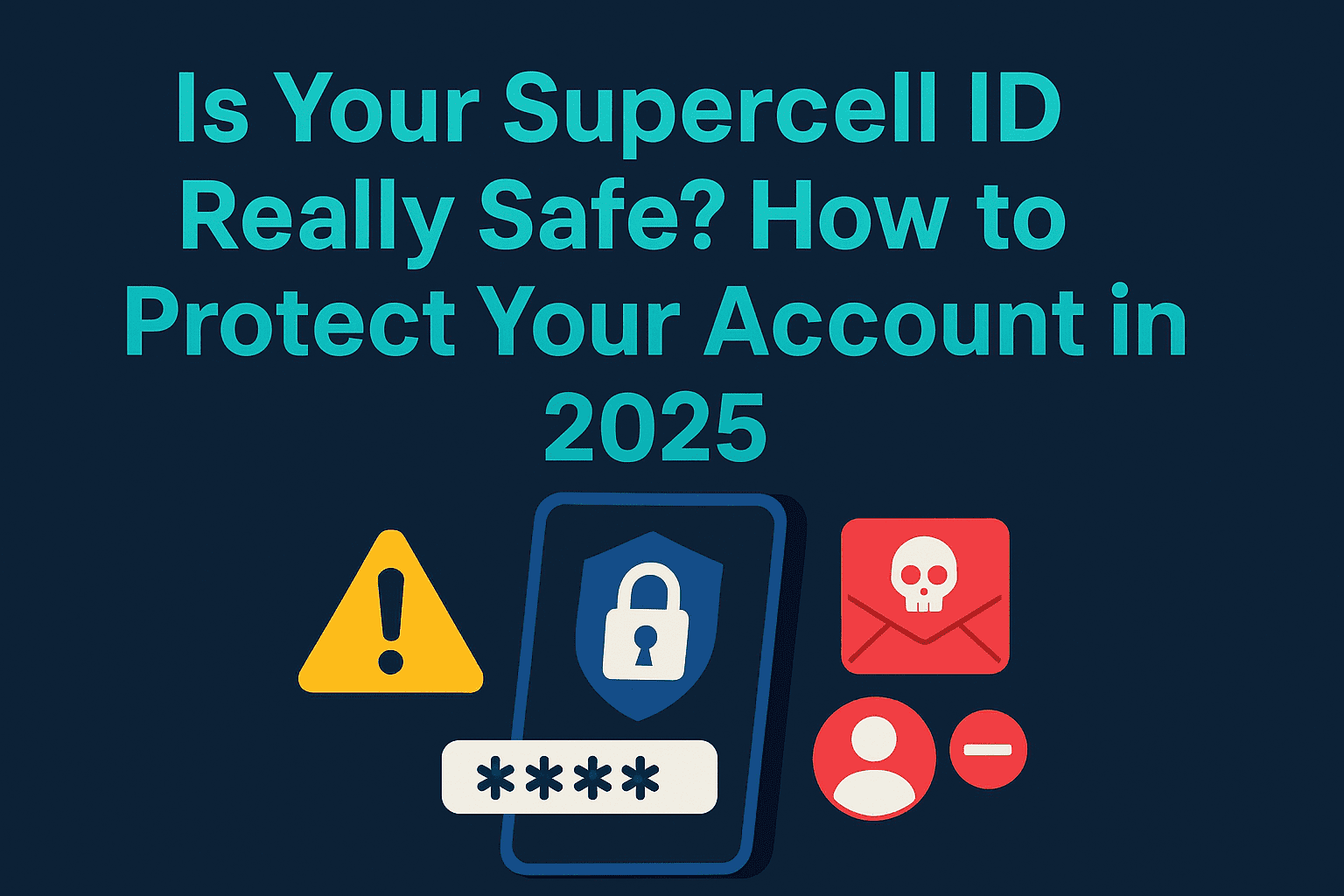
If you’re playing games like Clash of Clans, Brawl Stars, or Clash Royale, your Supercell ID holds a lot more than just login information—it stores years of gaming progress, rare in-game items, and possibly hundreds of dollars’ worth of virtual currency. In 2025, with cyber threats on the rise and hackers targeting gaming accounts more than ever, your Supercell ID has become a digital asset worth protecting.
In this complete guide, we’ll walk you through everything you need to know about Supercell ID security—why it matters, what threats you face, and most importantly, how to defend your account like a pro.
What Is Supercell ID and Why You Need One
Supercell ID is a free login system developed by Supercell to help players save progress and switch between devices without losing their game data. It supports all major Supercell games, including:
- Clash of Clans
- Brawl Stars
- Clash Royale
- Hay Day
- Boom Beach
Instead of using passwords, Supercell ID sends you a unique code via email each time you log in. This eliminates the need for memorizing passwords and minimizes the chances of being hacked via password guessing.
Why players use Supercell ID:
- Easily switch between devices
- Manage multiple accounts on one device
- Prevent progress loss
- Sync across Android and iOS platforms
- Enable additional account protection features
How to Set Up a Supercell ID (Securely)
Setting up your Supercell ID is simple:
- Open any Supercell game
- Go to Settings > Supercell ID
- Enter your email address
- Verify with the 6-digit code sent to your inbox
To make your account more secure, activate Supercell’s built-in Account Protection feature:
- Tap the gear icon in the Supercell ID menu
- Select “Account Protection”
- Activate SMS verification and save your recovery codes in a secure location
Important: Your Supercell ID is only as secure as the email it’s linked to. Make sure your email account has two-factor authentication (2FA) enabled. Follow Google’s 2FA setup guide.
The Biggest Threats to Supercell ID Security in 2025
1. Phishing & Smishing Attacks
Hackers are targeting mobile gamers through SMS and email phishing (a.k.a. \”smishing\”). These attacks often promise free gems or exclusive skins and link to fake login pages.
Protect yourself:
- Never enter your login code or email on unofficial sites
- Don’t click suspicious links from text messages
- Report phishing attempts to Supercell support
Learn more about phishing: Norton Phishing Guide
2. Weak or Reused Passwords
While Supercell ID doesn’t use traditional passwords, your email does. Using weak or repeated passwords across sites is one of the top ways hackers get in.
Fix it fast:
- Use a password manager like Bitwarden
- Create a unique, 14+ character password with symbols and numbers
3. Downloading Apps from Unofficial Sources
Third-party or modded APKs might claim to give you an edge in the game, but they often come with malware designed to steal your credentials.
Only download from trusted sources:
4. Social Engineering via In-Game Chat
Some scammers use in-game chat to manipulate users. They may pretend to be a support agent, clan leader, or fellow player offering a reward—then ask for your email or login code.
Stay sharp:
- Supercell will never ask for your login code in chat
- Don’t trust anyone asking for account details
- Report suspicious behavior immediately
How to Secure Your Supercell ID Step-by-Step
- ✅ Enable Two-Factor Authentication on Your Email
Your email is the key to your Supercell ID. If it’s compromised, so is your account. Use 2FA to add an extra barrier. - ✅ Turn On Account Protection in Supercell
Go to any Supercell game: Settings > Supercell ID > Gear Icon > Account Protection > Activate. This enables SMS verification and backup recovery codes. - ✅ Don’t Share Your Account
Sharing your login or verification code—even with a friend—is risky. It also violates Supercell’s Terms of Service and could get your account suspended. - ✅ Monitor Login Notifications
Every time your account logs in on a new device, Supercell will send you an email. If something looks off:- Click “This isn’t my device” in the email
- Log out of all devices
- Change your Supercell ID email immediately
What to Do If Your Supercell ID Is Hacked
Signs of compromise:
- Emails in a language you don’t speak
- Login notifications from unknown devices
- You’re logged out of all games
- Your verification codes stop arriving
Step-by-step recovery:
- Change your email password
- Click “This isn’t my device” in any unfamiliar login notification
- Use SMS verification or recovery codes (if enabled)
- Contact Supercell Support from within any game:
- Go to Settings > Help and Support > Chat icon
Support may ask for:
- Your player tag or ID
- Account name and level
- Clan or Club name
- Purchase receipts or transaction IDs
Avoid fake support scams:
- Supercell never initiates contact via DM or social media
- Never share recovery or login codes outside the game
Post-Recovery: Lock Down Your Account
Once your account is recovered, secure it better than before:
- Change the email connected to your Supercell ID
- Re-enable Account Protection and 2FA
- Monitor activity for strange logins
- Never reuse passwords between email and other platforms
Final Thoughts
Your Supercell ID is more than a login—it’s your entire gaming journey. In 2025, that digital identity is more valuable than ever. With phishing scams, malware, and account takeovers on the rise, taking five minutes today to lock down your ID could save you from losing years of progress.
Focus on what you enjoy—playing the game—not stressing over security. Enable protections, use strong passwords, and stay informed. The safer your account, the more you can enjoy the game.
Want to help your clanmates stay secure too? Share this guide!
Technology
Powerful Strategies: Top 10 Tips to Drastically Reduce Your Home Electricity Bills
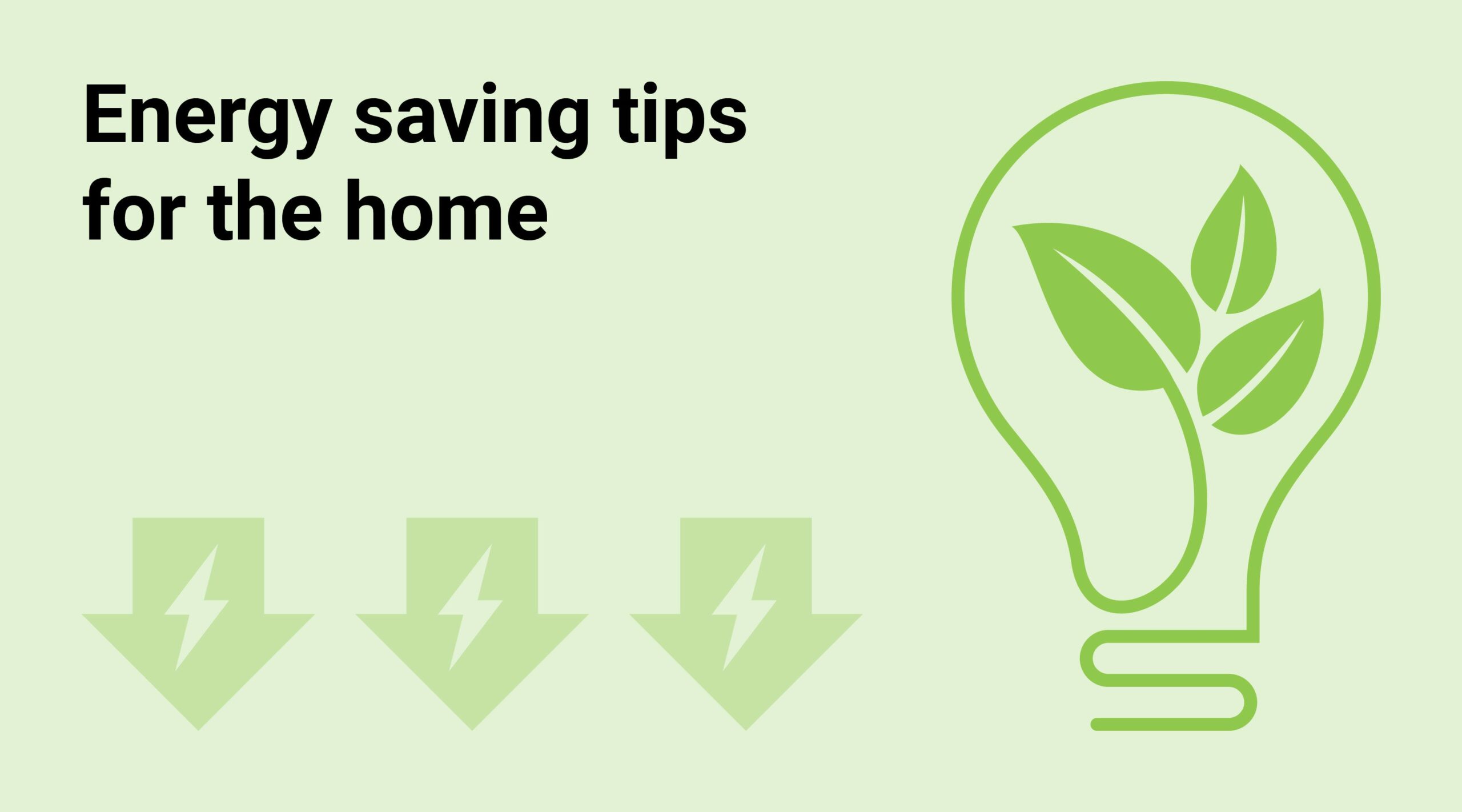
In today’s world, where the cost of living continues to rise, finding effective ways to reduce electricity bills has become a pressing concern for many households. This article presents a comprehensive guide with the top 10 strategies to not only cut down on energy costs but also promote a more sustainable and eco-friendly lifestyle. Let’s delve into these powerful tips that can lead to significant savings and contribute to a greener planet.
1. Conduct a Comprehensive Home Energy Audit:
The first step towards reducing electricity bills is to understand your home’s energy consumption. To begin with, perform a thorough energy audit, identifying areas of improvement such as energy-draining appliances, insulation issues, and potential drafts. Online tools and professional audits can provide valuable insights into your energy usage patterns.
2. Upgrade to Smart Thermostats:
Investing in a smart thermostat is a game-changer for energy efficiency. These devices learn your heating and cooling preferences, adjusting the temperature based on your habits. Consequently, this not only enhances comfort but also leads to substantial energy savings over time.
3. Embrace Energy-Efficient Appliances:
Replace outdated appliances with ENERGY STAR-rated models. These appliances are specifically designed to consume less energy while maintaining optimal functionality. From refrigerators to washing machines, upgrading to energy-efficient options significantly contributes to reducing electricity bills.
4. Unplug Devices When Not in Use:
Combat phantom energy consumption by regularly unplugging devices and chargers when they’re not actively in use. Even in standby mode, electronic devices continue to draw power, contributing to unnecessary energy expenditure.
5. Switch to LED Bulbs:
Make the transition to LED or CFL bulbs. These energy-efficient alternatives not only consume less energy but also have a longer lifespan, thereby reducing the frequency of replacements. Consequently, switching to LED lighting is a simple yet impactful step towards lowering your electricity bills.
6. Seal Leaks and Optimize Insulation:
Addressing drafts and optimizing insulation in your home is crucial for regulating indoor temperatures. Sealing leaks around windows and doors prevent heat loss or gain, thus reducing the strain on heating and cooling systems and leading to substantial energy savings.
7. Regular HVAC Maintenance:
Schedule regular maintenance for your Heating, Ventilation, and Air Conditioning (HVAC) system. Cleaning or replacing filters, addressing leaks promptly, and ensuring optimal efficiency can significantly contribute to reducing electricity bills.
Related Article: Slash Your Electric Bill by 90% with This Simple Trick
8. Invest in Solar Power:
Explore the possibility of installing solar panels on your property. While the initial investment may be substantial, solar panels harness the power of the sun, providing a clean and renewable energy source that can lead to long-term savings.
9. Leverage Wind Energy Options:
In regions with favorable wind conditions, consider harnessing wind energy through small-scale wind turbines or community wind projects. Wind power adds another dimension to your efforts to reduce electricity bills while embracing renewable energy.
10. Take Advantage of Financial Incentives:
Many utility companies offer rebates or discounts for customers who invest in energy-efficient technologies. Additionally, government programs and tax credits may further offset the initial costs of implementing these strategies, making it a financially savvy decision.
Conclusion:
Reducing electricity bills is not only about saving money but also about adopting a more sustainable and responsible lifestyle. By incorporating these top 10 strategies into your daily routine, you can make a significant impact on your energy consumption and costs. Start implementing these powerful tips today and embark on a journey towards a more energy-efficient and eco-friendly home.
Technology
Slash Your Electric Bill by 90% with This Simple Trick
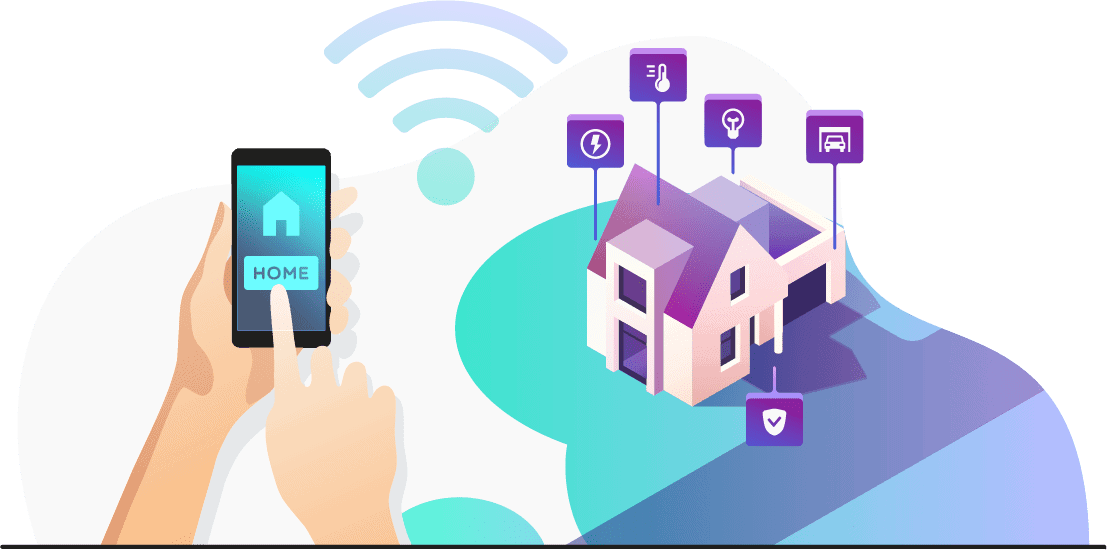
Introduction:
In today’s landscape of escalating energy costs and environmental concerns, finding effective ways to reduce electric bills is a top priority for many households. This comprehensive guide unveils a revolutionary method, a single trick capable of potentially slashing your electric bill by an impressive 90%. Let’s delve into the details of this energy-saving secret and learn how to implement it for maximum efficiency in your daily life.
Understanding the Current Energy Landscape:
Before exploring the trick, it’s crucial to comprehend the current energy landscape. With electricity costs on the rise and a growing emphasis on environmental sustainability, individuals seek sustainable and cost-effective solutions. The 1 simple trick we are about to unveil not only addresses these concerns but also offers a practical and accessible approach suitable for everyone.
The Power of Smart Home Automation:
The key to a substantial reduction in your electric bill lies in embracing smart home automation. This innovative technology allows you to control and optimize your home’s energy usage effortlessly. By integrating smart devices and systems, you gain the ability to monitor, manage, and adjust your energy consumption in real-time.
Smart Thermostats: A Game-Changer for Energy Efficiency:
One of the most impactful components of the 1 simple trick is the adoption of a smart thermostat. Traditional thermostats often lead to energy wastage, operating on fixed schedules and heating or cooling empty spaces. Smart thermostats, on the other hand, learn from your habits, adjusting temperature settings based on your preferences and presence. This not only enhances comfort but also significantly reduces energy consumption.
The Role of Energy-Efficient Appliances:
In conjunction with smart thermostats, upgrading to energy-efficient appliances amplifies the effectiveness of the trick. Modern appliances, designed with energy-saving features, consume significantly less electricity without compromising performance. We’ll explore the top-rated energy-efficient appliances that complement the smart home automation approach, providing you with a comprehensive strategy to cut your electric bill.
Harnessing Solar Power for Sustainable Savings:
To achieve the full potential of the 1 simple trick, consider incorporating solar power into your home. Solar panels capture the sun’s energy and convert it into electricity, offering a clean and renewable energy source. Advances in solar technology have made it more accessible and affordable for homeowners, contributing to long-term energy savings and environmental benefits.
The Financial Incentives of Energy Efficiency:
Beyond the immediate reduction in your electric bill, embracing energy efficiency and smart home automation often comes with financial incentives. Many utility companies offer rebates or discounts for customers who invest in energy-efficient technologies. Additionally, government programs and tax credits may further offset the initial costs of implementing the 1 simple trick, making it a financially savvy decision.
Practical Steps to Implement the Trick:
To implement this 1 simple trick effectively, we’ll guide you through the practical steps involved, from selecting the right smart thermostat to choosing energy-efficient appliances and exploring solar options. With easy-to-follow instructions, you can embark on the journey to cut your electric bill without compromising your lifestyle.
Conclusion:
In conclusion, the 1 simple trick to cut your electric bill by 90% is rooted in the power of smart home automation, energy-efficient appliances, and harnessing solar energy. By adopting these practices, you not only enjoy immediate savings but also contribute to a more sustainable and eco-friendly future. Explore the possibilities, empower your home with technology, and witness the transformative impact on your energy consumption and costs.
-
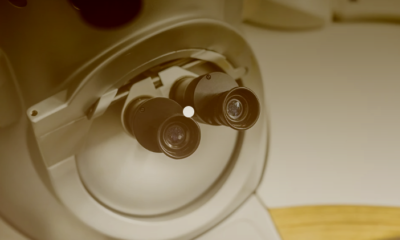
 Technology3 years ago
Technology3 years agoNew ghost image algorithm creates a higher resolution image
-

 anime3 years ago
anime3 years agoMillions of anime fans will love this new feature on Sony TV
-

 cars3 years ago
cars3 years ago5Aston Martin Valkyrie Review 2023
-

 Mobiles3 years ago
Mobiles3 years agoMillions of users can access the hidden Netflix update
-

 Health2 years ago
Health2 years agoChina’s Healthcare System: The Top 5 Hospitals for Quality Care
-
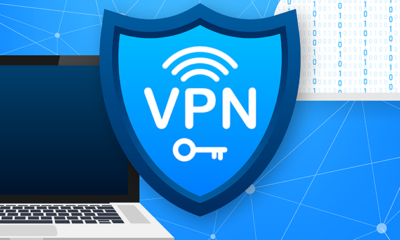
 Technology2 years ago
Technology2 years agoWhat is a VPN | How VPNs Work
-
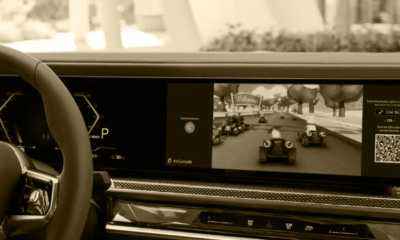
 News3 years ago
News3 years agoBMW will bring casual video games to its curved screen in 2023
-
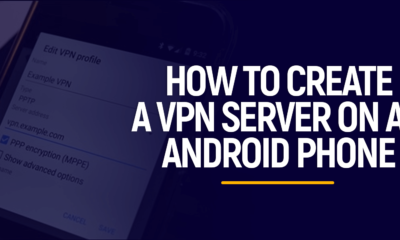
 Mobiles2 years ago
Mobiles2 years agoHow to set a VPN on Android without an app
